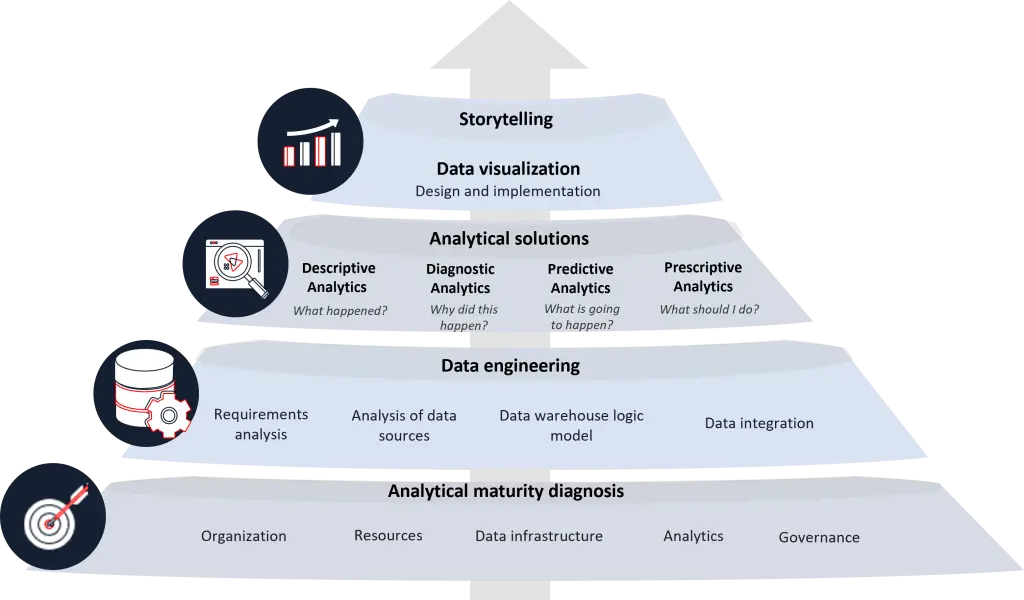Data Analytics Training
Training is crucial for users to adopt data analytics in organizations, as it provides them with the necessary skills to use it effectively, optimize their processes and get the maximum value from their data.

Common challenges encountered in data analytics projects:
Ensure that data projects are aligned with the company’s strategic objectives.

Lack of knowledge on how to design and build data processing systems.
Not knowing how to use new methodologies and methods for data extraction, processing and analysis.
Being outdated with respect to recent trends in the world of data and analytics.
Organizational resistance to adopting new data-driven solutions.
Lack of experience of your team to extract information.
At DAECO, we understand the challenges organizations face in performing data analytics. That's why we offer a variety of courses that equip your teams with the knowledge they need to succeed and get the most value from your data.
Our courses will offer a learning path
Find the right course for you:
- Start with the course that fits your experience.
- Purchase them individually or as a package.

What you will learn from each course:

Analytical maturity diagnosis
We will lay the groundwork on how to approach data maturity in your organization. How investments in infrastructure, people, tools, organization and processes can help you move along the path to data maturity. In addition, you will learn how to get the most out of the data maturity assessment and how to use it to guide your organization’s data maturity.
Key Points
- What are the 5 diagnostic dimensions and why were they chosen?
- How you can drive your organization’s data maturity.
Data engineering
You will gain skills needed to effectively collect, store and process data, preparing you to apply this knowledge in real-world use cases and contribute to the success of organizations through data management.
Key Points
- Analysis of data sources.
- Data repository design.
- Data integration and transformation.
- Provide solutions to complex business problems.
- Ingest and Update of data repositories.
Analytical solutions
Acquire general knowledge to identify, transform and organize facts based on data to draw conclusions, make predictions and drive informed decision making.
Key Points
- How to ask the right questions.
- Establish measurable objectives.
- Identification of data sources.
- Extract information from your data.
- Design and build descriptive models to answer: what happened to your data?
- Design and build diagnostic analytical models to answer: what happened to your data?
- Design and build predictive models to answer: what will happen?
- Design and build prescriptive models to answer: what should happen?
- Transcend to new prediction scenarios, in which it is possible to suggest actions to be taken in dynamic and changing scenarios.
Data visualization
Your analytical skills will be expanded by answering questions and telling a story with your data.
Key Points
- Best practices and data visualization concepts.
- How to select the most appropriate data visualization for an analysis.
- Learn the best techniques and methods to analyze and visualize data.
- How to create various graphs, maps, scatter diagrams and interactive panels using different tools.
Storytelling
Learn how to combine the power of data analytics and storytellingand storytelling to create powerful stories with data and how to incorporate advanced animations into your stories.
Key Points
- Communicate the results and implications of your quantitative analyses in a way that is visual and understandable to non-technical people.
- Comprehensive data storytelling process.
- How to add interactivity and other visual elements to a story.
We love to push the boundaries of growth that an organization can achieve using its own data.
Why hire a data scientist when you can tap into the wealth of knowledge your employees possess?
- Become a data-driven organization.
- Stay up to date on the latest news and trends in the world of data and analytics.
- Understand and creatively solve a variety of key business and social problems.
- Learn how to design and build data processing systems.
- Leverage data and gain real time insights that improve your decision making and accelerate innovation.
- Offer flexibility to your business and your workforce with new capabilities in analytics.


